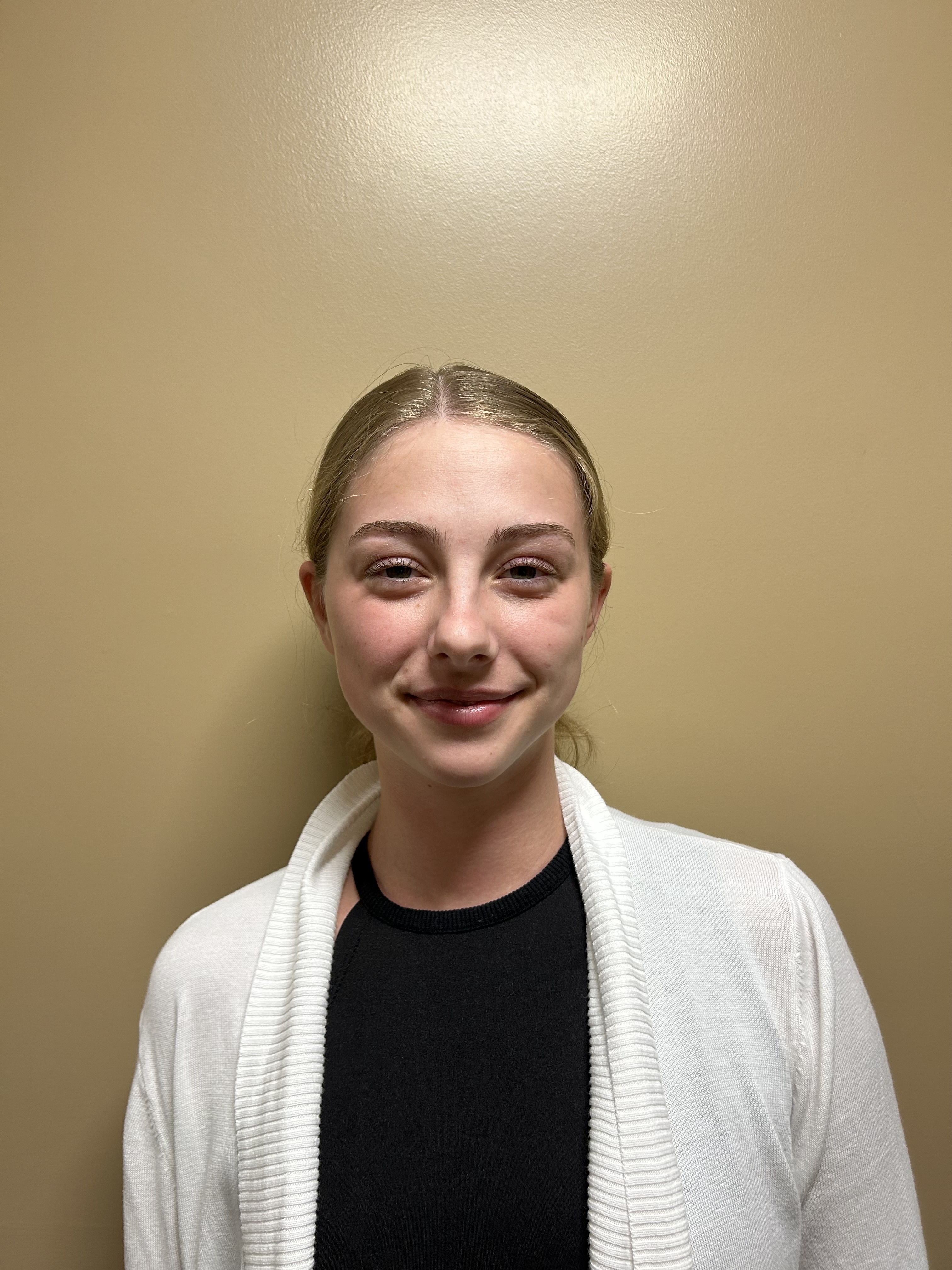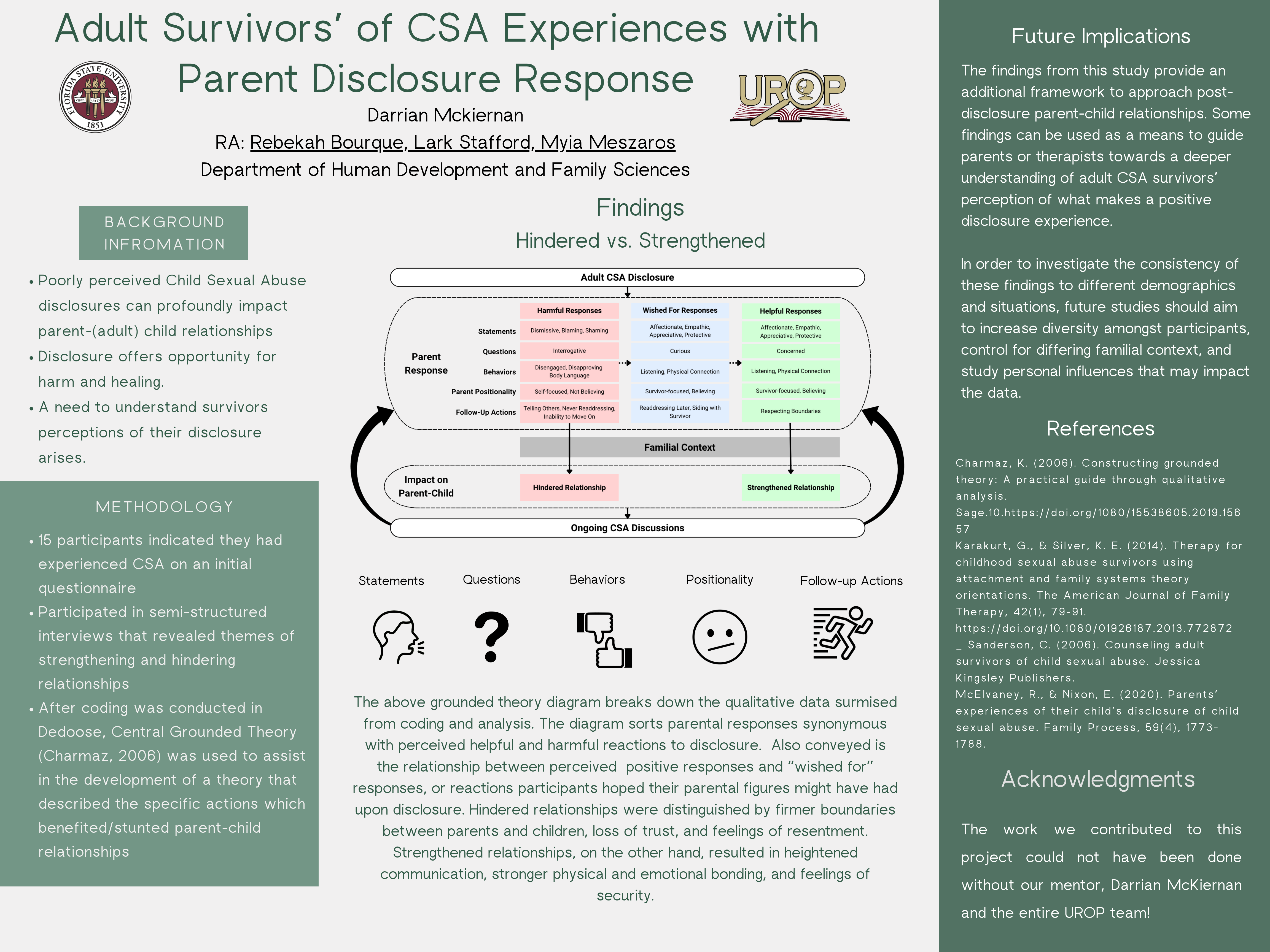Research Symposium
24th annual Undergraduate Research Symposium, April 3, 2024
Rebekah Bourque Poster Session 1: 9:30 am - 10:30 am /126

BIO
My name is Rebekah Bourque and I am originally from Sarasota, Florida. Currently, I am majoring in Behavioral Neuroscience at Florida State University. Although this makes me a STEM student, I plan on pursuing law school and eventually hope to work in Mental Health Law, combining my passion for STEM and justice for the underrepresented. The research I have participated in at FSU specifically explored the perception of adult Childhood Sexual Abuse victims after disclosing their experience to parents/parent figures, revealing what was helpful and unhelpful.
Adult Survivors of CSA Experiences with Parent Disclosure
Authors: Rebekah Bourque , McKiernanStudent Major: Behavioral Neuroscience
Mentor: McKiernan
Mentor's Department: Human Development and Fmaily Science Mentor's College: Education, Health, and Human Sciencesn Co-Presenters: Lark Stafford, Myia Meszaros
Abstract
Sexual abuse during childhood is extremely rampant in American societies. While this experience is inherently traumatic, disclosure between victims and their parental figures can invite healing (Karakurt & Silver, 2014). Despite the potential for understanding and acceptance, experiences of sexual abuse disclosure also have the potential to induce harm. The purpose of this study was to qualitatively explore how parents’ and parent figure’s responses to adult disclosures of Childhood Sexual Abuse (CSA) impacted the survivors’ perception of the disclosure experience and develop a central theory. It further evaluated the ability of parent’s responses to either strengthen or hinder the relationship with their child. The study’s goal was then to apply these results to a theoretical framework and describe the most helpful ways for parents to respond to their children’s disclosures. In-depth semi-structured interviews with fifteen participants revealed specific responses that hindered and strengthened relationships. In developing the theory, five themes emerged: statements, questions, behaviors, positionality, and follow up questions. Additionally, wished for responses, familial context, and ongoing CSA discussions were emphasized. Parents’ specific approaches to each of these themes contextualized the impact of the CSA. In future CSA disclosures, parents can apply the in depth theoretical framework developed by this study to inform responses to CSA disclosure.
Keywords: Childhood Sexual Abuse, CSA, Parent-Child Relationships, Disclsoure, Adult-Child Parent Relationships


